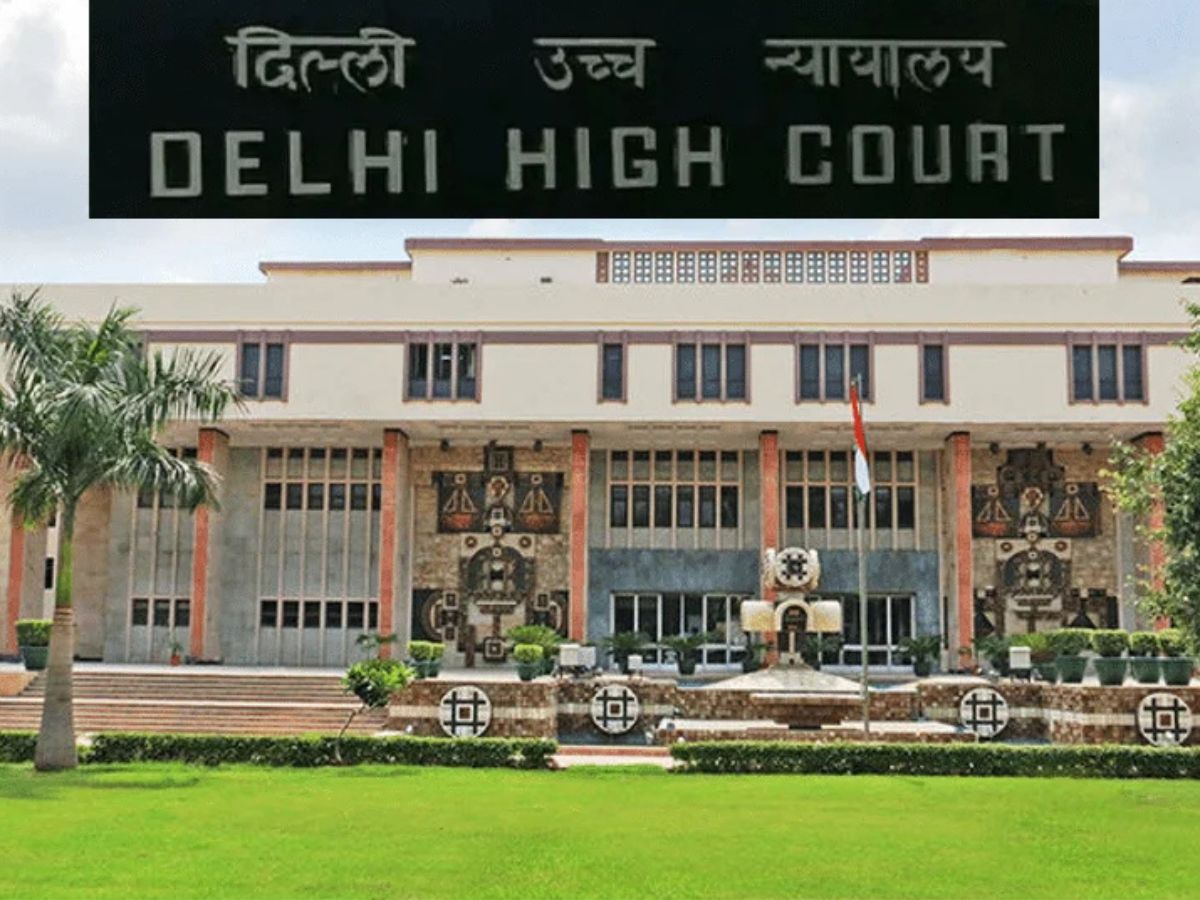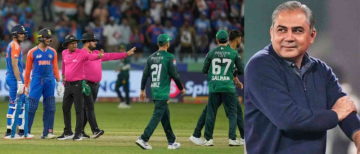In a significant ruling that redefines the contours of matrimonial maintenance in India, the Delhi High Court has held that alimony cannot be granted to a financially independent spouse. The verdict, delivered by a Division Bench comprising Justice Anil Kshetarpal and Justice Harish Vaidyanathan Shankar, underscores a key principle: the purpose of permanent alimony under Section 25 of the Hindu Marriage Act (HMA) is rooted in social justice, not financial equalisation between capable individuals.
The court made it clear that maintenance laws are designed to protect spouses who face genuine economic vulnerability after divorce, not to serve as a source of undue financial gain. Justice Kshetarpal observed that the law is not meant to “make one person rich at the expense of another” or to “simply equalise the bank balances of two self-sufficient individuals.”

Case Background: Two Highly Qualified Professionals in a Short-Lived Marriage
The case involved a senior Indian Railway Traffic Service (IRTS) officer and her husband, a practising advocate. Both were well-established professionals, financially independent, and had been married before. Their second marriage, solemnised in January 2010, lasted barely 14 months, with the couple separating by March 2011. The marriage produced no children.
The husband filed for divorce in a Family Court, citing mental cruelty, including allegations of abusive language, insulting messages, humiliation in professional circles, and denial of conjugal rights. The Family Court accepted the husband’s plea, granting him a decree of divorce in August 2023 while denying the wife’s claim for permanent alimony.
Unwilling to accept the decision, the wife appealed to the Delhi High Court, contesting both the divorce order and the refusal to grant maintenance. She argued that she sought “financial stability” ahead of her retirement, but the High Court found no merit in her plea.
High Court’s Observation: Alimony Is Not a Right, but a Relief Based on Need
Reviewing the case, the Bench observed that judicial discretion under Section 25 of the HMA must be exercised with prudence. The law allows courts to grant maintenance only when the applicant proves genuine financial hardship.
The Bench noted:
“Judicial discretion under Section 25 cannot be exercised to award alimony where the applicant is financially self-sufficient and independent. Such discretion must be based on evidence of genuine economic vulnerability.”
The court highlighted that the wife’s position as a senior Group ‘A’ officer with a steady government salary, benefits, and allowances demonstrated her financial independence. There was no evidence of economic duress, liabilities, or health issues that would justify financial support from her ex-husband.
Given her stable career, substantial income, and lack of dependents, the Bench found no credible reason to interfere with the Family Court’s denial of alimony.

The ₹50 Lakh Settlement Demand: Financial Motivation Behind Opposition
One of the most telling elements of the case was the wife’s demand for ₹50 lakh as a precondition for agreeing to the divorce. This demand was not merely oral; it was recorded in her affidavit and repeated during cross-examination.
The High Court took note of this conduct, observing that her opposition to the divorce was financially driven, not emotional or moral. The judges remarked:
“When a spouse, while ostensibly resisting the dissolution of marriage, simultaneously predicates consent thereto upon payment of a substantial sum, such conduct inevitably indicates that the resistance is not anchored in affection, reconciliation, or preservation of the marital bond, but in pecuniary considerations.”
The court found the Family Court’s inference — that her resistance was rooted in monetary motivation — to be reasonable and evidence-based. Consequently, her claim for alimony was deemed unjustified, further weakening her appeal.
Grounds of Cruelty: Family Court’s Findings Upheld
In addition to the financial question, the High Court also reviewed the husband’s allegations of cruelty. The Family Court had found that the wife had used derogatory and degrading language against her husband and his mother, even calling him of illegitimate birth, conduct that clearly amounted to mental cruelty.
Rejecting her counterclaims of cruelty, the Division Bench ruled that “mere assertion of counter-cruelty does not nullify proven acts of cruelty.” Each allegation, the court said, must stand on evidential merit. The High Court thus upheld the Family Court’s finding that the wife’s conduct constituted cruelty under Section 13(1)(ia) of the Hindu Marriage Act.
With this, both the divorce decree and denial of alimony were upheld.
Court’s Interpretation of Section 25: A Measure of Social Justice
A major portion of the judgment was devoted to explaining the spirit of Section 25 of the Hindu Marriage Act, which empowers courts to grant permanent alimony and maintenance. The Bench reiterated that the provision is equitable in nature and aims to ensure financial justice between spouses, particularly protecting a partner who lacks independent means of sustenance.
The judgment clarified:
“Permanent alimony is intended as a measure of social justice — not a tool for enrichment or equalising the financial status of two capable individuals.”
The court further observed that the grant of alimony is not automatic and depends entirely on evidence of financial hardship, dependency, or extraordinary circumstances. In this case, no such factors were present.
The Bench also noted that there was no significant disparity between the incomes of the two spouses. Both held prestigious positions, enjoyed professional stability, and possessed ample earning capacity. Therefore, there was no justification for judicial interference.
Recent Trend: Judicial Scrutiny of High-Value Alimony Demands
The Delhi High Court’s ruling aligns with a growing judicial trend of closer scrutiny of high-value alimony claims in India. Courts are increasingly emphasizing that education, professional competence, and employability must be factored in before awarding maintenance.
A recent instance, cited in the Supreme Court, involved a woman who sought a luxury house in Mumbai, ₹12 crore in maintenance, and a BMW car. Chief Justice of India BR Gavai commented that as a highly educated woman, she should be capable of earning her own livelihood.
“Aap itni padi likhi hai. Aapko khudko mangna nahi chahiye aur khudko kama ke khana chahiye,” the Chief Justice had remarked — reminding litigants that alimony is not meant for personal enrichment, but for survival in cases of genuine need.
This broader judicial sentiment reinforces the view that financial independence negates entitlement to alimony, particularly when both partners are capable and self-reliant.
Final Verdict: No Alimony Without Proof of Financial Necessity
Summing up the case, the Delhi High Court concluded that the wife’s claim lacked legal and moral basis. Her high government position, steady income, and absence of dependents meant she could “maintain herself with dignity” without her ex-husband’s financial assistance.
The judgment emphatically stated:
“The short duration of cohabitation, the absence of children, the appellant’s substantial and independent income, and the lack of credible evidence of financial necessity cumulatively negate any claim for permanent alimony.”
Accordingly, the Bench dismissed her plea, upholding the Family Court’s verdict.
Legal and Social Implications of the Ruling
This judgment sets a crucial precedent in matrimonial law, offering a balanced perspective between social protection and financial accountability. By reaffirming that alimony is a social safeguard, not an economic equaliser, the Delhi High Court reinforces the judiciary’s commitment to ensuring that maintenance provisions are not misused for monetary advantage.
Legal experts believe this decision could serve as a reference point in future disputes involving financially independent spouses. It also underscores the judiciary’s insistence on evidence-based discretion rather than emotional or moral arguments in determining alimony.
Bottom Line
The Delhi High Court’s verdict in ABC v. XYZ (Neutral Citation: 2025:DHC:9233-DB) stands as a milestone ruling reaffirming that permanent alimony is not an entitlement but a conditional relief based on necessity. The judgment draws a firm line between social justice and financial exploitation, clarifying that the law exists to shield the economically vulnerable, not to provide a windfall to the financially secure.
As Justice Anil Kshetarpal succinctly put it, “Alimony cannot be granted to a spouse who is already financially self-sufficient. The law’s purpose is protection, not profit.”
With inputs from agencies
Image Source: Multiple agencies
© Copyright 2025. All Rights Reserved. Powered by Vygr Media.






















